I hate to be negative but, recently, I’ve found myself getting a bit fed up with upgrades.
No, not these Upgrades (I love them).
Upgrading skills/abilities has been a staple of games for quite some time, and has been appearing across genres in an attempt to ‘RPGify’ them or incorporate some form of progression. Yet so many developers manage to get it wrong. I’m not against them altogether and rarely do they completely ruin games. Careful consideration needs to be given in their implementation is all.
UPGRADEZZZZZ
I’ll start with the first culprit that comes to mind: Comic Jumper. For a downloadable game, the presentation is wonderful while the voice-acting and humour add to the experience. Sadly, the gameplay underneath is mostly ignored. What raises my ire, though, is how it has incorporated upgrades. They are dull; amounting to nothing more than giving you more health and making you deal more damage. Yet, they are at the same time necessary, since the difficulty is increased in equally unimaginative ways. The comic settings and visuals may change but most encounters involve blasting away with what is, for all intents and purposes, the same gun until the enemy dies, with only their ability to take more bullets as well as dish out more damage increasing the ‘challenge’.
If a little boring, these upgrades might have worked better if they were unlocked automatically. Instead, they must be bought with cash earned at the end of levels. Sounds normal, except the amounts can usually be quite paltry, even taking into account any bonuses earned for not getting hit during particular sections or avoiding using the ‘kill everything’ function (both of which become harder to do if you haven’t upgraded in the first place!). The worst aspect of the system is how your end level revenue is boosted, on a percentage basis, by buying unlockables. For the most part, these are not useful things and there are a lot of them, each requiring a separate purchase. Yes, there are some nice goodies and some funny interviews, but having to trawl through dozens of concept art pieces, paying 100 credits or so for each one to give a 1% boost to earnings is annoying.
It gives a distinct impression that Twisted Pixel need you to see all the work that went into this creation and how the character of Captain Smiley first appeared, but at the expense of any degree of effort going into the core gameplay. Overall, it actually hurts the progression since players now have to balance what to ‘invest’ in unlockables and what to spend on upgrades; checking their budget and scrolling through more artwork in-between levels. That or keep replaying the same levels again and again (only heightening the gameplay’s sense of repetitiveness). For a developer that claims they were inspired by Gunstar Heroes, including different weapons would’ve been the very least they could do.
OUT OF CHARACTER
In a similar vein, The Witcher 2 makes a blunder of upgrading…for the most part. The biggest complaint is that the game starts off too difficult and gradually becomes incredibly easy; suggesting an imbalance in the difficulty curve. A big part of this is how the levelling and upgrades are handled.
Geralt is a Witcher. A badass monster-killer (he’s badass; the monsters are a pain in the ass). He is not invincible but has been able to best a group of swordsmen as well as go toe-to-toe with all manner of creatures who could tear a man apart with ease. He cannot remember how to counter-attack.
The first Witcher game was able to cover Geralt’s distinct lack of abilities with a convenient case of pre-game amnesia. In-between the two instalments he seems to have forgotten almost everything again. To his credit, he still has knowledge of all the Witcher Signs, albeit in a very weakened state. After a while, the talent trees do open out and offer a more customisable approach but, unfortunately, you do have to spend a lot of talent points on ‘uncrapifying’ your character (to borrow a term from RockPaperShotgun’s Jim Rossignol).
Blocking and casting signs rely on ‘Vigor’, which is severely limited to two ‘pips’ at the start. Potions (and later upgrades) can aid its regeneration but, since each action uses a whole pip, players will also find themselves resorting to dodging. Another skill which is pretty ineffective until upgraded.
It’s no wonder that the modding community have been looking beyond cosmetic alterations such as nude skins for the female characters and into completely reworking the upgrades and abilities. Not to take anything away from the nude mods, obviously. Nice work, you guys!
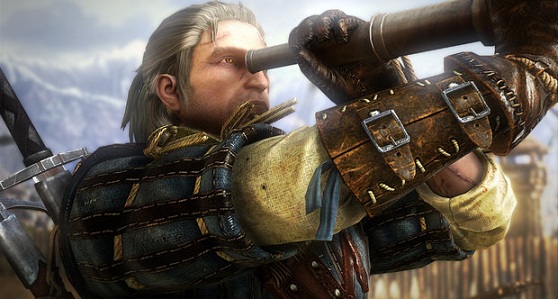
Of course, it wouldn’t be an RPG without some sort of upgrading or levelling, especially if your character is going on ‘a journey’, but the limitations and system are incongruous with the game’s character and overall story. For ‘classical’ RPGs, this disconnect is not too difficult to reconcile within some player’s minds, no matter how large it may be; it’s other genres where it becomes a little more noticeable.
Upcoming game, Dead Island places a large emphasis on melee weapons, i.e. things any old fool can pick up and swing. As Kotaku’s recent preview pointed out, one such weapon is a pipe. A level five pipe.
If you are not a high enough level, you cannot use it. This would be understandable if the character were less skilled with the item as one would be when lacking proper training in a martial arts weapon such as a sword or staff, but this is a pipe. Note: do not go looking for ‘pipe combat lessons’; I’ve tried.
It’s not really any different to other action-RPGs restricting you from things like wearing heavy armour, and where ‘upgrading your strength’ to do so is instant and does not actually alter your physique at all, yet it seems ridiculous here. Spending money, which actually goes to no one, on upgrades at work benches sounds equally absurd. Perhaps it is the fact that Dead Island’s RPG elements have slowly been revealed, clashing with the more immediate Left 4 Dead-style approach that the majority of people were expecting. Obviously, these inconsistencies can vary on a case-by-case basis for both games and people.
MISLAID UPGRADE
I’m sure all of us have played at least one game where you start off significantly upgraded only to find ourselves robbed of this once the introductory section is over. In TV Tropes-land (it’s a real place) this is referred to as A Taste Of Power (please remember to come back!). I’m not against this method as such. I understand that displaying all the game’s riches upfront is a handy way to both introduce players to the basic gameplay concepts without fear of easy failure, as well as keep them interested enough to continue playing. There are, however, good and bad ways to go about this.
Take Assassin’s Creed, for example. Altair starts as a master assassin only to be stripped of his weapons and abilities, for being a douchebag and failing Master Splinter…uh, Al Mualim. I can understand that confiscating better weapons and pouches for throwing knives may teach him a lesson. It’s how the stab of a dagger makes Altair forget how to dodge or grab ledges when falling, whilst otherwise retaining his regular mobility, that baffles me.
In comparison, Prototype skirts this issue by beginning in medias res (fancy talk for: later in the story) before shifting back to an earlier period in time. It can be a useful narrative technique to get right into the action even if it can somewhat spoil a few of the upgrade surprises awaiting the player.
There is another downside to this ‘upfront’ approach, besides the clash with the game’s fiction. Revealing all the abilities so early may whet the appetite but also places a greater emphasis on the game’s narrative and a possible need for a well-paced drip-feed of unlocks. Unfortunately, Prototype’s plot leaves a lot to be desired and, while the combat is no slouch, it’s an agonising wait until you get to elbow-drop a tank again.
CAN’T SEE THE GOODS FOR THE TREES
Ah, talent trees. It’s a double-edged sword here. On the one hand, if well-organised, a talent tree can be a handy way of seeing a particular build to aim for. On the other, it limits players to following a set path and can force them to spend upgrade points on skills or abilities they never wanted, in order to access later ones.
This a tricky one to get right because it’s easy to be too restrictive with unlocks but also hard to balance abilities if you’re not. As talked up before release, The Witcher 2’s talent tree has definitive divisions where players can focus on Swordsmanship, Signs or Alchemy and thus get an idea of what is needed for that playstyle. They can split points between these paths but this means there are less left for spending on later, more powerful abilities and upgrades. In practice, it’s not too bad, but certain useful upgrades like extra Vigor are along the Signs path even though it is used for blocking and parrying (Swordsmanship skills!). [Note: Of course, since I started writing this CD Projekt RED released their latest Version 2.0 update which actually removes the need for Vigor when parrying (is blocking implied?) but I’m sure this was not the only example of foolishly splitting related upgrades across talent trees.] Fortunately, most of the upgrades can make significant improvements too. Which is especially handy, considering how uneven the experience rewards and subsequent levelling up can be.
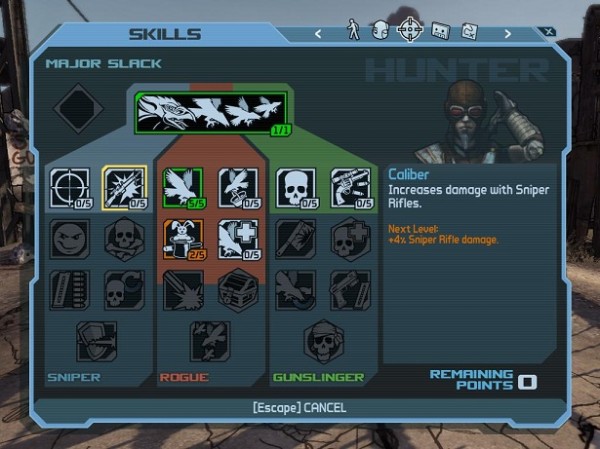
Borderlands manages to put more useful skills behind prerequisites that are generally quite insignificant or minor as well as splitting some related upgrades on separate paths. The latter may be some attempt at balancing though, since free rein might possibly allow each character’s special ability to become overpowered and with short cooldown times. From personal experience, you do need to ‘uncrapify’ Mordecai’s sniper skill a bit at the beginning though, as his aim can be incredibly wonky even with a mouse. Fortunately, the characters’ basic functionality is the same. It’s the job of the upgrades to give each one their individual flair, and general weapon skill (damage, reload time, aiming stability, etc.) is improved via proficiencies for each, i.e. use sniper rifles a lot and you get better with them. In this case, it’s a while before this makes an impact but the general idea is nice. And it could be worse…
BETRAYED BY AN UPGRADE
Yes, sometimes, upgrade systems can be incredibly, shall we say, broken. Oblivion takes the ‘get better at things by doing them’ approach, which sounds nice in theory but is easily exploitable or can come with its own drawbacks. Because the level-scaling works in-line with the major and minor skills the player has chosen, a stealthy, ranged character can find themselves ‘stuck’ when forced into close-combat with tough enemies. Others may find themselves just too weak, in general. See Tom at Nightmare Mode’s story:
Here’s an actual, true story of me playing Oblivion, which I’ve recently decided to replay: my lovely level three Dark Elf is one skill away from leveling. She needs to level up two points of blunt or blade so she can get five points of strength upon leveling up, because otherwise she’ll only get three or four points of strength and will fall behind the leveling race with the rats of the world. I’m in a cave, surrounded by monsters. My relevant skills (Blade, Restoration, Conjuration, and Destruction) are all major skills and all very close to leveling, which they can’t do because then I wouldn’t get very much strength. I find a sort of boss enemy, a wizard, and, for the sake of leveling up properly, I go at him with my rusty war axe of incompetence instead of, you know, doing anything I’m actually good at. All so I can level up properly.
An experienced player may know how to work the system to their advantage but any new player would be stuck with these skill choices from the very beginning and might only discover the problem tens of hours into the game. There is a difficulty slider, which can be adjusted anytime, but even the slightest shifts create drastic changes.
GOING TO EXTREMES
Karma/morality systems is a huge topic for another article but a big flaw in them is how they govern upgrades. Although games with such systems purport to give a lot of choice in how players react to situations, the way their abilities and upgrades work clearly dictates that sticking with one extreme will reap the largest rewards. After all, there’s no point trying to be a Sith Lord unless you’re attempting to murder every last person in order to unlock your lightning power. The plus side to this approach is that it creates a distinctly evil person with matching abilities but, most times, the game might as well have you select ‘Be Good/Be Evil’ at the start and take care of all the choices automatically.
It’s the middle-ground that suffers the most though. If games give us a choice, most of us will want to go with our own feelings as regards to the story but there’s always that nagging voice in the back of our heads telling us to think about the karma meter.
Perhaps a more interesting approach would be to reverse this process. Give the player access to all the abilities and determine certain things about them by which ones they use. It’s not a perfect system (or particularly well thought-out by myself) but it gets the player thinking more about their abilities and any restrictions are, effectively, self-imposed rather than completely locked off.
MISSING THE POINTS
My last point is one about, well, points. It’s just a small niggle from games like Mass Effect 2. Unlike the first game, where you could split many points across various things, there are only a few main abilities to focus on. I’m not against the streamlining here but it does mean you have to look at how many points are required for each upgrade and plan accordingly. Of course, because there’s a level cap, there’s the chance you’ll be left with points you can’t put into anything.
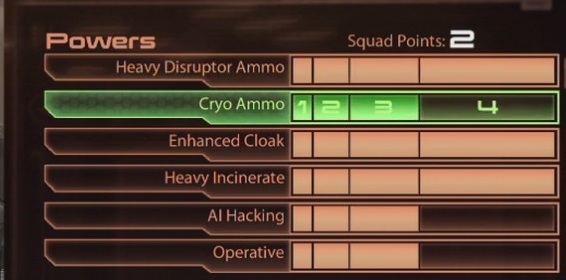
This can be especially annoying for games where there are even higher point requirements. Players will spend a while not increasing stats or abilities, even waiting multiple level increases, purely to put them all into a particular upgrade. It’s especially annoying if you’re forsaking more immediately useful skills. Sometimes it’s a sign that players should not be attempting to purchase said skills at an earlier stage but if levelling up always rewards a consistent amount of points then there’s not much recourse.
As I said at the beginning, I’m not suggesting we throw the baby out with the bathwater. Upgrades are a simple and handy way of giving us a sense of progression or getting us attached to our avatars. I found myself rather fond of Mordecai’s Bloodwing during my time with Borderlands; especially when it saved my dumb self via its ability to make enemies drop ammo and health when I had decided to face a mini-boss without enough of either. It became my Bloodwing, my pet, and that’s not something you expect to say about ‘a thing that happens when I press the skill button’. I’m sure we all have similar stories involving a particular ability or weapon we’d unlocked (please don’t say it’s just me!)
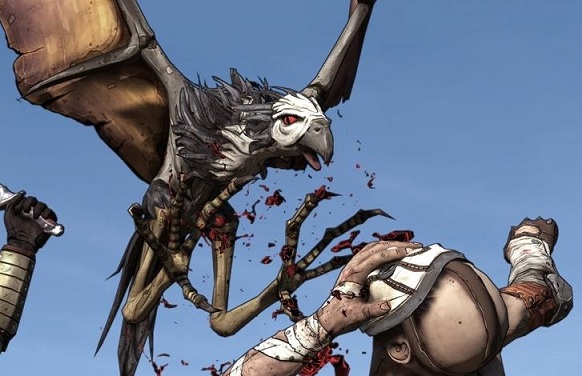
However, I am encouraging us to look more closely at how these upgrades are implemented and to expect more, and I hope my examples gave some perspective on that. Deus Ex proved that it’s possible to weave abilities in with the characters and fiction while also giving them an integral role in the gameplay by allowing the player a large amount of control in how they shape and use them. Obviously, not every game can be up to these standards but I think it’s important to go that extra step when considering upgrades. Does the game really need them? Are they all significant? Do they work in the context of the game’s universe?
Then again, maybe I just have a personal problem with them. I did ‘powergame’ the latest Deus Ex, yet spent most of my time with 4-6 Praxis Points kept aside ‘in case of emergency’. Or perhaps it speaks to the power of generally well-implemented and significant upgrades…
Feel free to share your own examples of terrible or great upgrades and related experiences/perspectives in the comments section below, or join us on the Press X or Die forum.
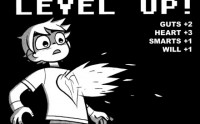
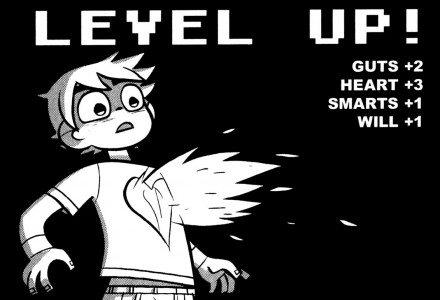
And I was just thinking to myself how much i dislike “leveling up” and whatnot these days. Most new games coming out or going free to play are starting to turn me off because some of them have the “level up system.”
Take battlefield3 for example. The beta boasts a stupid item-unlock system and perks. And city of heroes, blah blah blah.
My major gripe is that leveling up/ upgraging is almost always a chore, and having it in a COMPETITIVE game like BF3 is inexcusable. I have no interest in starting out a game against older players with extra benefits. And no, ranking me won’t work because maybe the only servers availble are the high ping ones. I’d rather most competitive games be skill-based such as UT/Quake.
In MMOs I get bored of PvE easily.
.